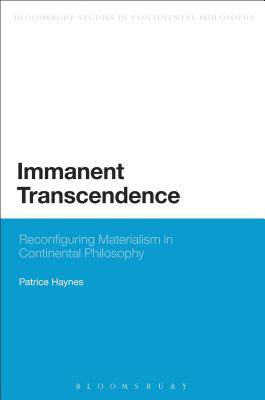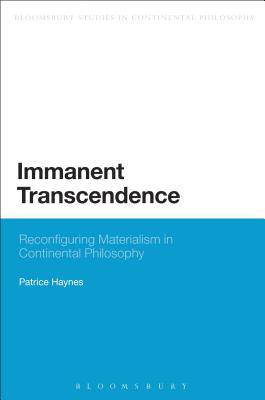
Je cadeautjes zeker op tijd in huis hebben voor de feestdagen? Kom langs in onze winkels en vind het perfecte geschenk!
- Afhalen na 1 uur in een winkel met voorraad
- Gratis thuislevering in België vanaf € 30
- Ruim aanbod met 7 miljoen producten
Je cadeautjes zeker op tijd in huis hebben voor de feestdagen? Kom langs in onze winkels en vind het perfecte geschenk!
- Afhalen na 1 uur in een winkel met voorraad
- Gratis thuislevering in België vanaf € 30
- Ruim aanbod met 7 miljoen producten
Zoeken
€ 81,45
+ 162 punten
Uitvoering
Omschrijving
Over the last twenty years materialist thinkers in the continental tradition have increasingly emphasized the category of immanence. Yet the turn to immanence has not meant the wholesale rejection of the concept of transcendence, but rather its reconfiguration in immanent or materialist terms: an immanent transcendence. Through an engagement with the work of Deleuze, Irigaray and Adorno, Patrice Haynes examines how the notion of immanent transcendence can help articulate a non-reductive materialism by which to rethink politics, ethics and theology in exciting new ways. However, she argues that contrary to what some might expect, immanent accounts of matter and transcendence are ultimately unable to do justice to material finitude. Indeed, Haynes concludes by suggesting that a theistic understanding of divine transcendence offers ways to affirm fully material
immanence, thus pointing towards the idea of a theological materialism.
immanence, thus pointing towards the idea of a theological materialism.
Specificaties
Betrokkenen
- Auteur(s):
- Uitgeverij:
Inhoud
- Aantal bladzijden:
- 224
- Taal:
- Engels
- Reeks:
Eigenschappen
- Productcode (EAN):
- 9781472524041
- Verschijningsdatum:
- 13/02/2014
- Uitvoering:
- Paperback
- Formaat:
- Trade paperback (VS)
- Afmetingen:
- 156 mm x 234 mm
- Gewicht:
- 317 g

Alleen bij Standaard Boekhandel
+ 162 punten op je klantenkaart van Standaard Boekhandel
Beoordelingen
We publiceren alleen reviews die voldoen aan de voorwaarden voor reviews. Bekijk onze voorwaarden voor reviews.









